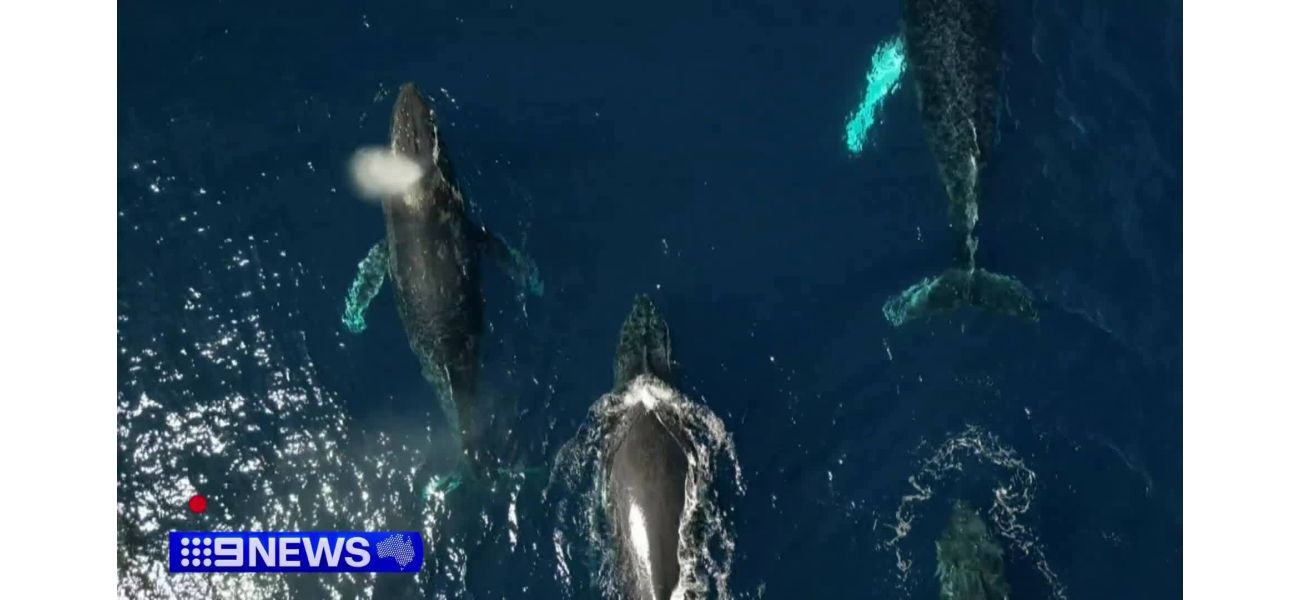Tracking whale migration as season concludes, with some unpleasant observations.
Scientists collected samples of humpback whale feces, an uncommon event for the area.
November 4th 2024.

The annual migration season of humpback whales in Queensland has officially come to a close, marking the end of a significant period of research and monitoring of these majestic creatures along Australia's shores. This season, researchers were able to deploy tags on 10 whales, allowing them to track their movements, behaviors, and habitat usage, providing valuable insights into their lives.
In a rare occurrence for the region, scientists were also able to successfully collect samples of humpback whale faeces. This will be a crucial addition to their research as they compare it with samples from Antarctica and other regions, such as South Africa, to gain a better understanding of the importance of whale poo for the ocean. As Dr. Olaf Meynecke from Griffith University explains, this will provide valuable information about the whales' role in their ecosystem.
However, despite the significant progress made, the season did not come without its challenges. Four whales were found caught in shark nets along the Gold Coast coastline, and more were found further afield. Additionally, researchers observed an increase in skin conditions among the whales, which could be an indication of health issues and potentially less success in feeding during the summer months, according to Meynecke.
As the season comes to an end, the humpback whales are now continuing on their long journey towards Antarctica, where they are expected to spend the next 2-3 months feeding on krill. This important feeding period will help sustain the whales for the rest of their migration journey. This article was produced with the assistance of 9ExPress, highlighting the collaboration and efforts of various organizations and individuals in monitoring and protecting these magnificent creatures.
In a rare occurrence for the region, scientists were also able to successfully collect samples of humpback whale faeces. This will be a crucial addition to their research as they compare it with samples from Antarctica and other regions, such as South Africa, to gain a better understanding of the importance of whale poo for the ocean. As Dr. Olaf Meynecke from Griffith University explains, this will provide valuable information about the whales' role in their ecosystem.
However, despite the significant progress made, the season did not come without its challenges. Four whales were found caught in shark nets along the Gold Coast coastline, and more were found further afield. Additionally, researchers observed an increase in skin conditions among the whales, which could be an indication of health issues and potentially less success in feeding during the summer months, according to Meynecke.
As the season comes to an end, the humpback whales are now continuing on their long journey towards Antarctica, where they are expected to spend the next 2-3 months feeding on krill. This important feeding period will help sustain the whales for the rest of their migration journey. This article was produced with the assistance of 9ExPress, highlighting the collaboration and efforts of various organizations and individuals in monitoring and protecting these magnificent creatures.
[This article has been trending online recently and has been generated with AI. Your feed is customized.]
[Generative AI is experimental.]
0
0
Submit Comment





